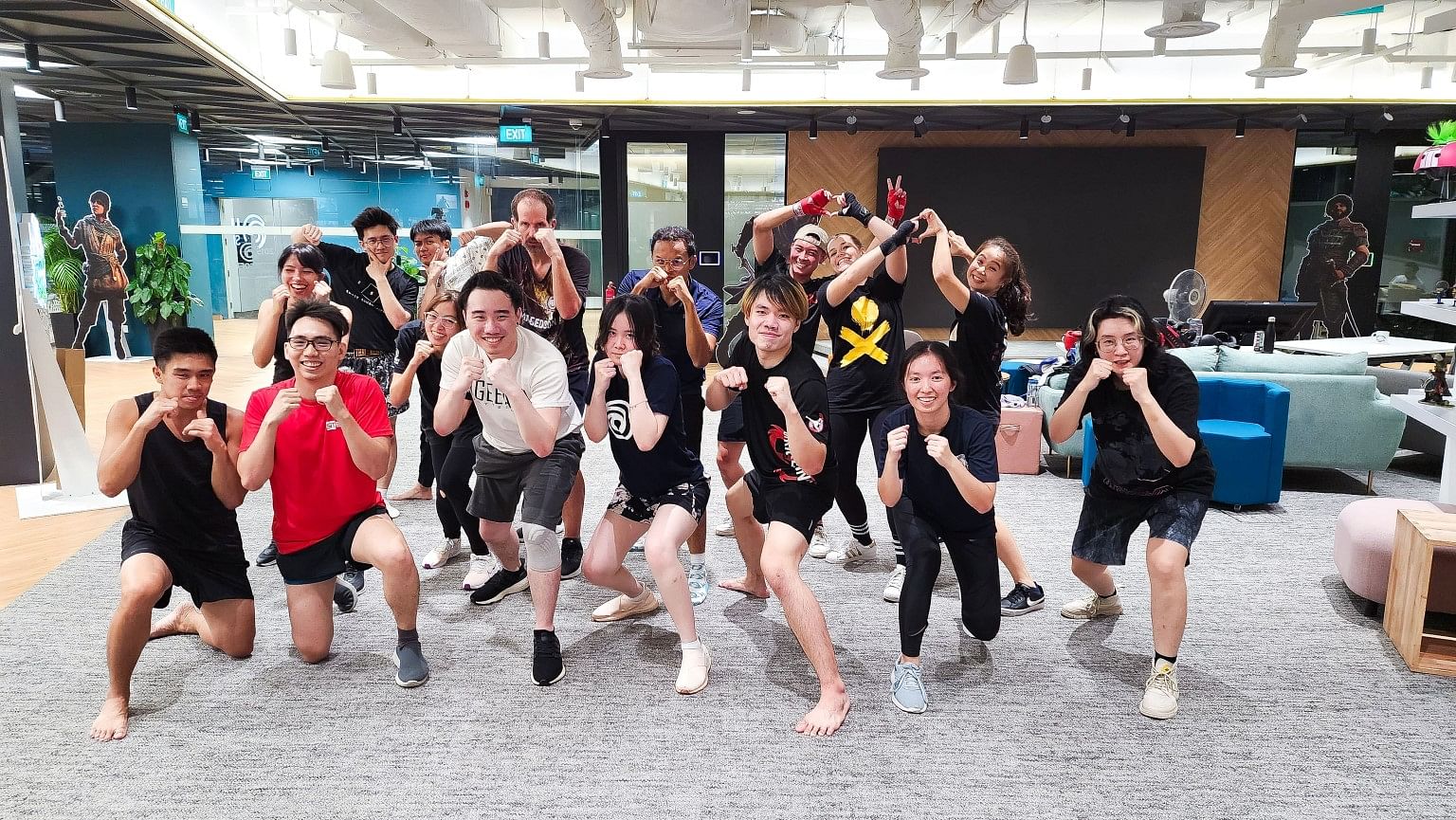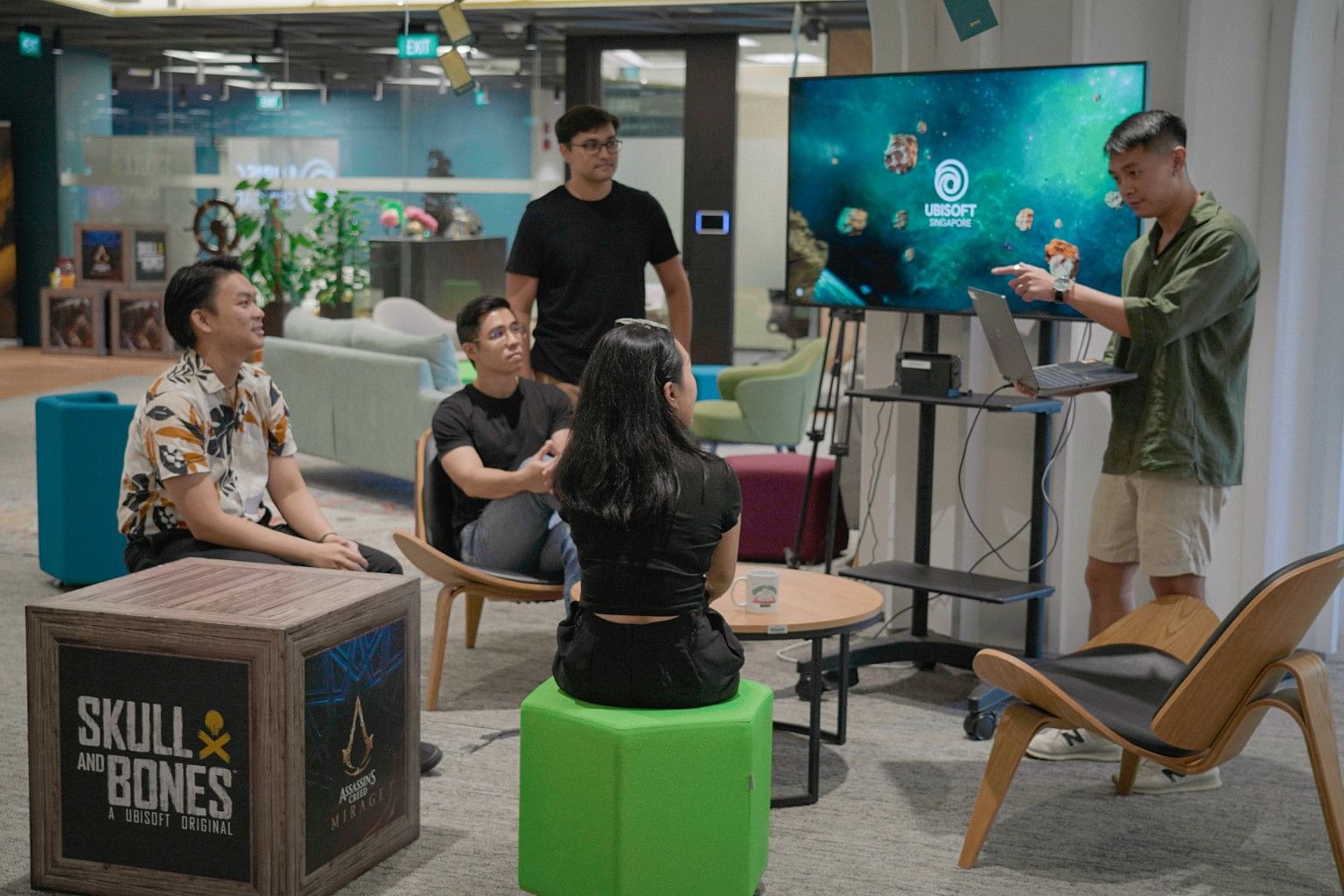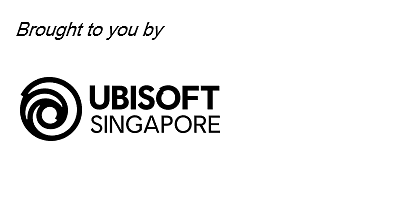When Mr Leonard Yip was introduced to one of his closest collaborators on his latest project, he was pleasantly surprised.
Just a few days ago, he had punched the man in the face – and been punched by him in return – several times.
There was no malice behind it, of course. The engagement had taken place during a meeting of video game developer Ubisoft Singapore’s combat sports club, one of many hobby clubs that Mr Yip and his colleague are part of.
"When we were onboarded to the same project, we didn’t have to do the legwork of trying to suss each other out," says Mr Yip, 28, a scriptwriter. "From the get-go, we were able to smoothly and seamlessly work with each other."
Hobby clubs are an integral part of Ubisoft's culture and are run organically after work hours. The firm currently has more than 30 active groups, ranging from a running club to a knitwork and crocheting club, and even one on meal preparation.
"It feels weirdly like a school CCA fair," quips Mr Yip, referring to co-curricular activities in schools. "When I first came here, I didn’t expect to see this kind of engaging mood in an office space."
For an international, triple-A development studio responsible for some of the biggest titles in the video game industry such as Assassin’s Creed and Far Cry, it only makes sense that play is an integral part of its culture.
Ubisoft ranks among Singapore’s best employers in 2024, a list by Statista in collaboration with The Straits Times.

Hands-on learning
Mr Yip says: "A lot of the conversations and creative work can only happen in a space where you feel like you’re able to play. Game development is by nature a very collaborative space. By virtue of necessity, I have to collaborate; every developer has to."
As a scriptwriter, he is responsible for crafting the story flow of a game.
But in order for his narrative choices to work, he has to understand how other members of the development team contribute to the process, such as the cinematics team or audio department.
"When you think about a game as a final product, it’s always about a cohesive product, a complete package," he says.
"So even though it’s important for us to know how to do our individual jobs, we have to think about how all the moving parts come together to form the final product."
Collaboration often happens through hands-on learning and innovation, which also play a major part in employee development at Ubisoft.
Human resources director Desiree Tan says: "We’ve always prided ourselves on being a teaching-learning studio."
For instance, with its Open Innovation initiative, Ubisoft enables employees to work collaboratively, whether it is about video game concepts or proposals to improve the workplace.

Regardless of the final product, Open Innovation allows Ubisoft personnel to step out of their daily roles and put on the hat of an entirely different role.
As Open Innovation also includes director-level staff, participants can learn from some of the most experienced industry veterans.
Mr Yip, who took part in the initiative, worked with his partner to oversee the business strategy for their video game project. He and his partner got to learn the process of designing their game and presenting it to senior management.
"I was exposed to learning things that would normally be considered outside of my level, such as how this game would fit into the current business climate," he says.
"I wouldn’t have had this opportunity to try something new and learn from industry veterans if not for Open Innovation – it was a really eye-opening experience.”
With offices in more than 40 different cities, Ubisoft employees can join an overseas studio for stints referred to as "missions".
Ms Tan says: "There’s a lot of cross-studio collaboration. Ubisoft really takes pride in the structure of co-development."
Having multiple studios work together on a single project leads to cultural exchanges, adding to the diversity and richness of ideas. These exchanges enable Ubisoft's games to resonate more with players around the world – which is the end goal of any game developer.
Mr Yip says: "I used to play Assassin’s Creed games as a kid. Now that I’m an adult and working on these games, it’s a dream come true.
"When a game ships, knowing that you’ve left your mark on it – and seeing that people around the world are playing – is such a special feeling."


